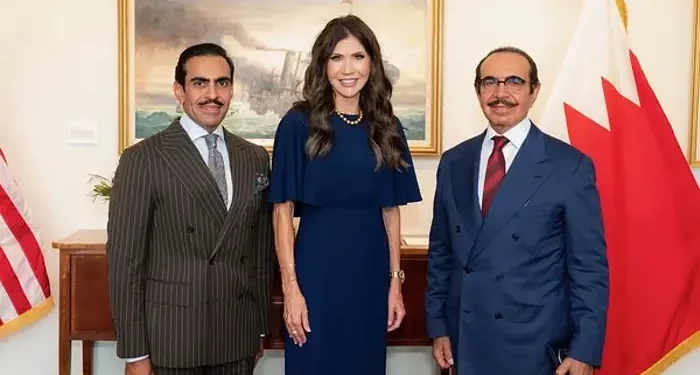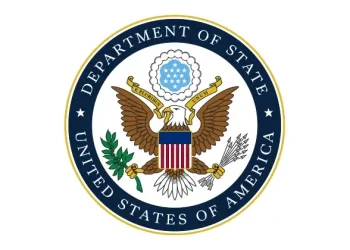On Monday, U.S. Department of Homeland Security Secretary Kristi Noem and Bahrain’s Minister of the Interior, General Shaikh Rashid bin Abdulla Al Khalifa, signed an Enhanced Border Security Partnership (EBSP) in Washington.
This agreement aims to bolster security by facilitating automated biometric data exchange to prevent criminal activities and enhance bilateral cooperation.
The EBSP is a significant step in strengthening the security relationship between the United States and Bahrain.
By enabling the automated exchange of biometric data, both nations aim to prevent criminals, terrorists, and fraudulent actors from traveling or obtaining benefits in the U.S.
This partnership is expected to deter illegal immigration, drug trafficking, human trafficking, and terrorism.
Bahrain’s strategic location in the Gulf region makes it a vital partner for U.S. security interests.
The country hosts the largest U.S. Coast Guard installation outside of America—Patrol Forces Southwest Asia (PATFORSWA)—which collaborates with the Naval Fifth Fleet to support regional stability and protect critical maritime routes.
Strategic Cooperation
The EBSP builds on existing agreements like the Comprehensive Security Integration and Prosperity Agreement (C-SIPA), which expanded bilateral cooperation into economic and technological sectors earlier this year.
These initiatives underscore Bahrain’s role as a crucial ally in countering regional threats such as terrorism, illicit trafficking, and Iranian aggression.
Program Highlights
- Facilitates automated biometric data exchange between Bahrain and DHS.
- Aims to prevent criminals from traveling or obtaining benefits in the U.S.
- Supports efforts against illegal immigration, drug trafficking, and terrorism.
- Strengthens U.S.-Bahrain diplomatic relations amid regional tensions.
Additional Reading
Wrapping Up
The Enhanced Border Security Partnership between the United States and Bahrain marks a pivotal advancement in international security collaboration.
By leveraging technology for biometric data sharing, both nations aim to fortify their defenses against transnational threats while reinforcing their longstanding diplomatic ties amidst evolving geopolitical challenges.
Sources: U.S. Department of Homeland Security, The Washington Institute, and Congressional Research Service.
Prepared by Ivan Alexander Golden, Founder of THX News™, an independent news organization delivering timely insights from global official sources. Combines AI-analyzed research with human-edited accuracy and context.








